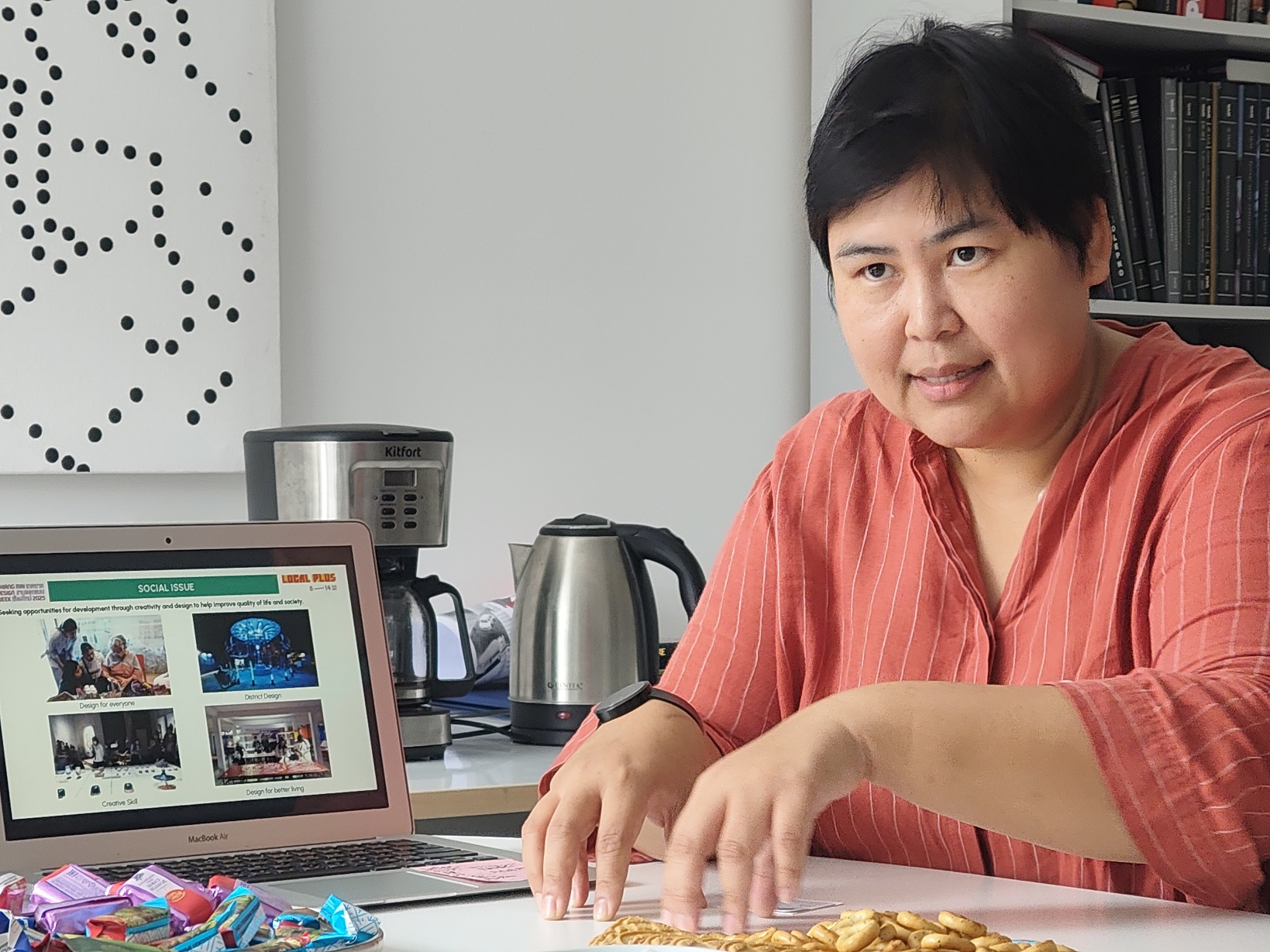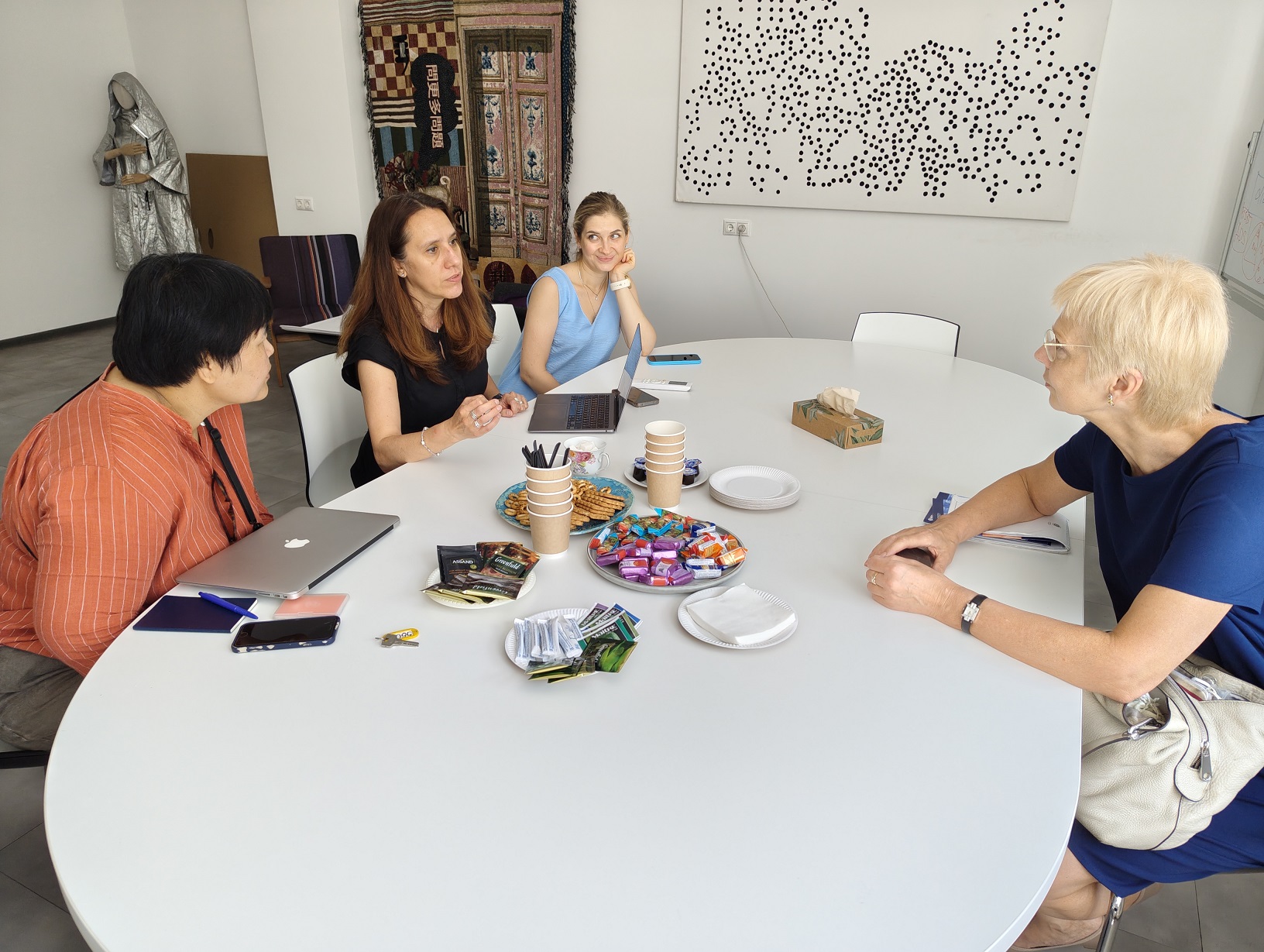Delegation of Thailand’s Creative Economy Agency Visits HSE University

Representatives of HSE University and Thailand’s Creative Economy Agency (CEA) held a meeting to discuss opportunities for cooperation in creative education and cultural exchange. The event took place at HSE University’s Art and Design School, with the support of the Royal Thai Embassy in Russia.
From HSE University, the meeting was attended by Marina Batalina, Director of the International Cooperation Centre, and Natalia Logutova, Deputy Director of the Institute for Creative Industries Development at the Faculty of Creative Industries. Representing Thailand was Ms Imhathai Kunjina, Director of the CEA’s Chiang Mai office.
The Creative Economy Agency is a leading public organisation in Thailand dedicated to supporting and advancing the creative industries. Its mission is to foster creative communities, drive sustainable local development, and facilitate global partnerships to promote Thailand’s cultural and economic growth. The agency organises several regional design weeks, including Bangkok Design Week, Pakk Taii Design Week (Southern Thailand), Isan Creative Festival (Northeastern Thailand), and Chiang Mai Design Week (Northern Thailand).
Natalia Logutova and Marina Batalina introduced their guests to HSE’s approach to education in the creative industries, using the HSE Art and Design School as an example. They emphasised the importance of project-based learning, interdisciplinary collaboration, and close ties with industry. Ms Kunjina highlighted some challenges faced by creative graduates in Thailand, including a lack of business knowledge: ‘Many graduates struggle to find jobs due to a limited understanding of business realities. Integrating business skills into creative education is essential, and we believe that project-based learning and internships play a key role in this.’

Meeting participants also discussed examples of successful international cooperation, such as joint exhibitions, artist residencies, and educational programmes with partners from Japan, Taiwan, Laos, France, and Russia. One project mentioned by the Thai delegation involved blending traditional crafts with contemporary design concepts, inspired by the Japanese mingei philosophy and supported by the Japan Foundation. In turn, HSE representatives spoke about the growing cooperation between the Faculty of Creative Industries and universities across Asia and Europe.
The two parties discussed opportunities for expanding cooperation through academic exchanges, joint exhibitions, creative business matching programmes, and digital platforms such as DAFES to showcase creative works globally. Natalia Logutova stressed the importance of linking academic programmes with real-industry experience to foster innovation and strengthen the creative economies of both countries. Marina Batalina emphasised the need for international collaboration in developing curricula that prepare students not only as artists and designers, but also as entrepreneurs and future leaders in the creative industries.

An important topic of discussion was the upcoming Chiang Mai Design Week—Thailand’s first annual design festival, which will take place this December. The event is themed Local+, celebrating the collaboration between local traditions and global innovations. Ms Imhathai Kunjina noted: ‘Chiang Mai Design Week provides a platform for local artisans and international experts to come together. Its goal is to support creative communities, promote sustainable living, and address social issues such as population ageing and climate change, thereby contributing to the sustainable development of the regions. The festival generates over 1.3 billion baht and attracts participants from 12 countries, demonstrating its growing global significance.’
The meeting concluded with a guided tour of the HSE Art Gallery and the Art and Design School’s shop. Both parties agreed to continue discussions on practical cooperation, including participation formats and organisational support for future events. They also decided to launch joint initiatives through HSE University’s digital platforms, exchange projects and best practices, and explore opportunities for exhibitions, workshops, and competitions during Chiang Mai Design Week in December 2025.

